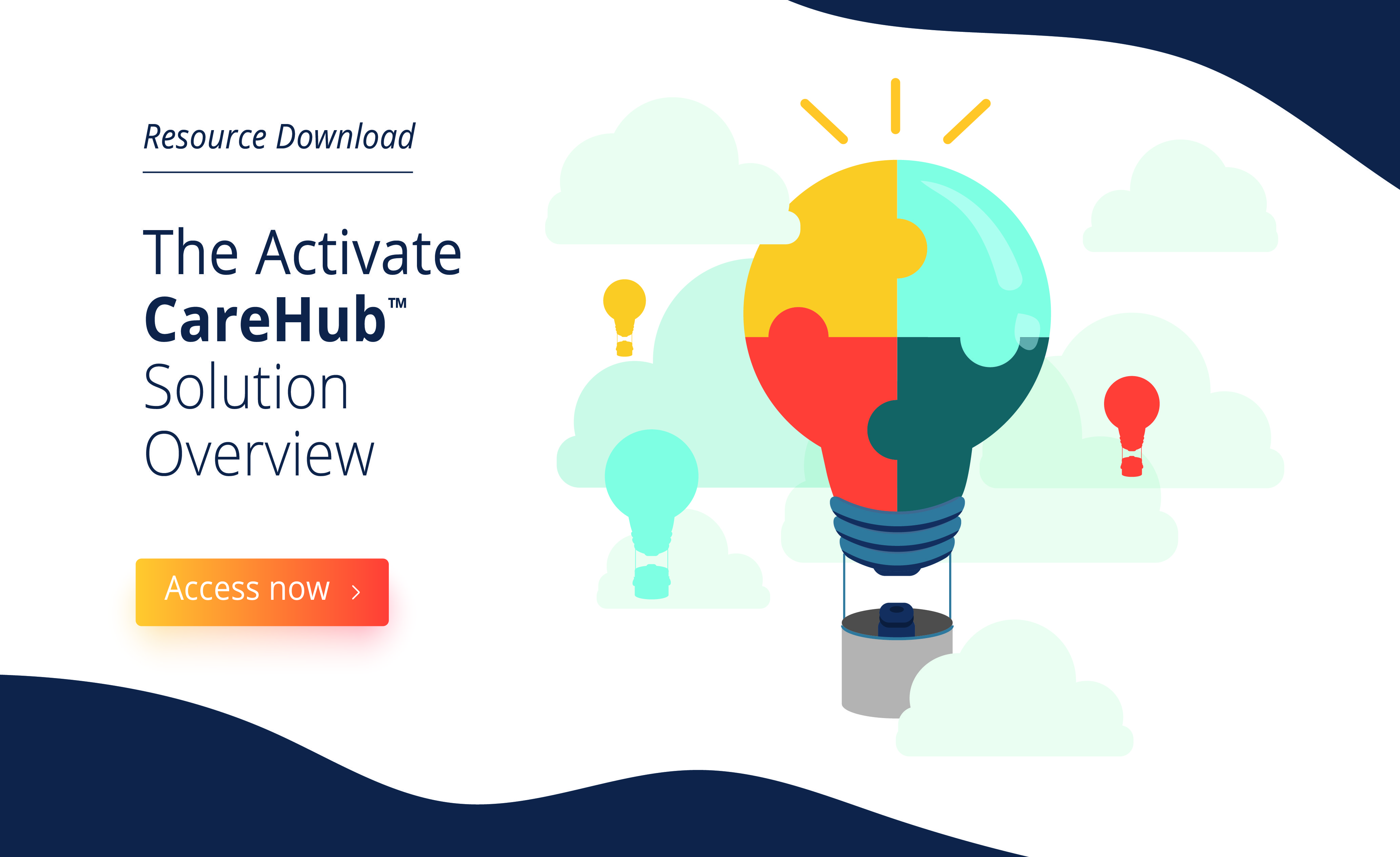In recent days, there have been many reasons to feel renewed in our mission here at Activate Care. One of these has been the start of the new year, which represents another step forward in the Era of SDOH Care. January also marks Poverty Awareness Month in the United States, which brings with it a humbling look at the challenges that lie ahead for our healthcare and social services systems, many of which are intersectional in nature.
This week, on Monday, we observed the 33rd federal Martin Luther King Jr. Day. The icon of the Civil Rights Movement left behind a legacy that renews our inspiration to help the world act differently to achieve better health outcomes. A fundamental principle of our work is to honor the importance of health equity, which means working to achieve a world in which everyone has a fair and just opportunity to be healthier. Dr. King’s words remind us that we have much work to do to overcome institutional barriers to better health outcomes, whether they be based on race, gender, nationality, socioeconomic status, sexual orientation, or any other identifier. We’re also reminded to be grateful for the bright spots that we see across the country.
“Of all the forms of inequality, injustice in health care is the most shocking and inhumane.”
For more than 100 years, Boston Medical Center has been driven by a commitment to care for all people, providing not only traditional medical care but also programs and services that wrap around that care to enhance overall health. Boston Medical Center has been affiliated with Boston University for its whole history, which is also where Dr. King studied and earned his Ph.D. in Theology in 1955.
One great example of this work today is the Telehealth Epilepsy Care Collaborative, which works to improve seizure screening methods in community health centers, integrate telehealth resources for individualized treatment plans, and prepare youth for a successful transition to adult-centered care. Activate CareHub™ serves as the Virtual Patient-Centered Medical Home for this initiative.
Managing epilepsy can be difficult. It is critical to diagnose epilepsy early in children, as it is often accompanied by developmental, cognitive, and behavioral comorbidities that affect the developing brain and can result in life-long disability. Children facing health disparities often have a high risk of unrecognized seizures and epilepsy. Boston Medical Center is working to address this injustice by making exceptional epilepsy care accessible for all, without exception.
“All labor that uplifts humanity has dignity and importance and should be undertaken with painstaking excellence.”
As healthcare innovators across the country work to improve health outcomes and reduce the cost of care, many are looking at the impact of health-related social needs, social determinants of health, and the time that patients spend outside the healthcare system. This change in focus has led many stakeholders to revisit the important role that community health workers, informal caregivers, and individuals with lived experience can play to support people with dignity.
The State of Oregon is setting an example of uplifting and reinforcing the role of the “Traditional Health Worker,” which it defines as community health workers, peer support specialists, family support specialists, youth support specialists, peer wellness specialists, personal health navigators, and doulas. At the core of this initiative is respect for the valuable contributions of these members of the healthcare workforce. The state has worked to adjust Medicaid regulations in order to more clearly define the types and roles of Traditional Health Workers, establish worker certification and registration programs, and ensure these roles are integrated into the managed care ecosystem.
Oregon’s Medicaid managed care program has been established as a network of regional Coordinated Care Organizations (CCOs) which are accountable for care management and providing integrated and coordinated health care for each organization’s members. CCOs are responsible for developing policies and programs that support regional and community accountability for health and health equity. Advanced Health in Western Oregon is one exemplary CCO that has prioritized their Traditional Health Workforce while also investing millions in SDOH programs as they scale their operations with help from Activate CareHub™.
“A genuine leader is not a searcher for consensus but a molder of consensus.”
In 2020, we foresee many paths forward for the Era of SDOH Care. What is clear to us is that health and social care leaders who desire to improve population health for all will have to take a stand. There is no silver bullet for SDOH in America today, except to work to unite local communities, integrate health and social care systems, and mobilize stakeholders around a new consensus - that everyone deserves the fair and just opportunity to be healthier.
